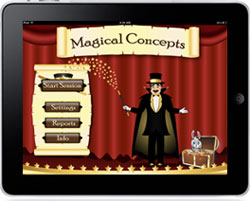I agree, buyers should beware of the reviews on the iTunes stores. Some individuals will negatively review an app simply because a competitor created it. Others will negatively review an app because they didn’t read the description of the app first and it doesn’t do what they want it to do. Reviews should be based on the quality of the app itself – not who created it, not who authored it, and not who annoyed whom. I look for reviews that explain the pros and cons of the app – what it does, what it doesn’t do, etc. Those are the type of reviews I write as well.
In a response to someone, you say that using language such as “… is based on research of … ” is a clever marketing trick. I’m curious why you believe this. The introduction of the app, where it cites research, is written by the author of the app – not Smarty-Ears. Many questions are asked about the research and efficacy of using apps in therapy. As SLPs we are responsible for doing research and using best practices. If an app is based on theory and research and can support that with cited articles – shouldn’t it be stated?
Perhaps I read your comment incorrectly, and if so I apologize – but I’m confused. You have made it sound as though Smarty-Ears as trying to be dishonest when they allow the author to cite the research the apps are based on. Yet, the overwhelming response from SLPs is that they want and need to see the literature that supports the app.
In the interest of full disclose, I will say I have helped author an app with smarty-ears. I am not employed by smarty-ears, they simply published my creation. I conducted research prior to creating the app and the app is based on that research.
I look forward to your response.

